RIEL Faculty and Students Attend the 17th Annual Colloquium of IUCN Academy of Environmental Law
The 17thAnnual Colloquium of IUCN Academy of Environmental Law was held in Kuala Lumpur, Malaysia, from 4 to 9 August 2019. The theme of this Annual Colloquium was “Achieving the Sustainable Development Goals(SDGs: Law as Part of the Solution”. Ph.D students Qi Wanwan, Ma Liang and Abid Hussain(of Pakistan) sent their abstracts in April and were then invited to attend to present their research papers at the Colloquium. Professor Qin Tianbao, the Director of the RIEL, attended the meeting of Governing Board of IUCN Academy of Environmental Law through video-link, and together with other executive committee members deliberated and adopted decisions on research, teaching, publication, finance and membership etc., and discussed the coming next development plan for the Academy.
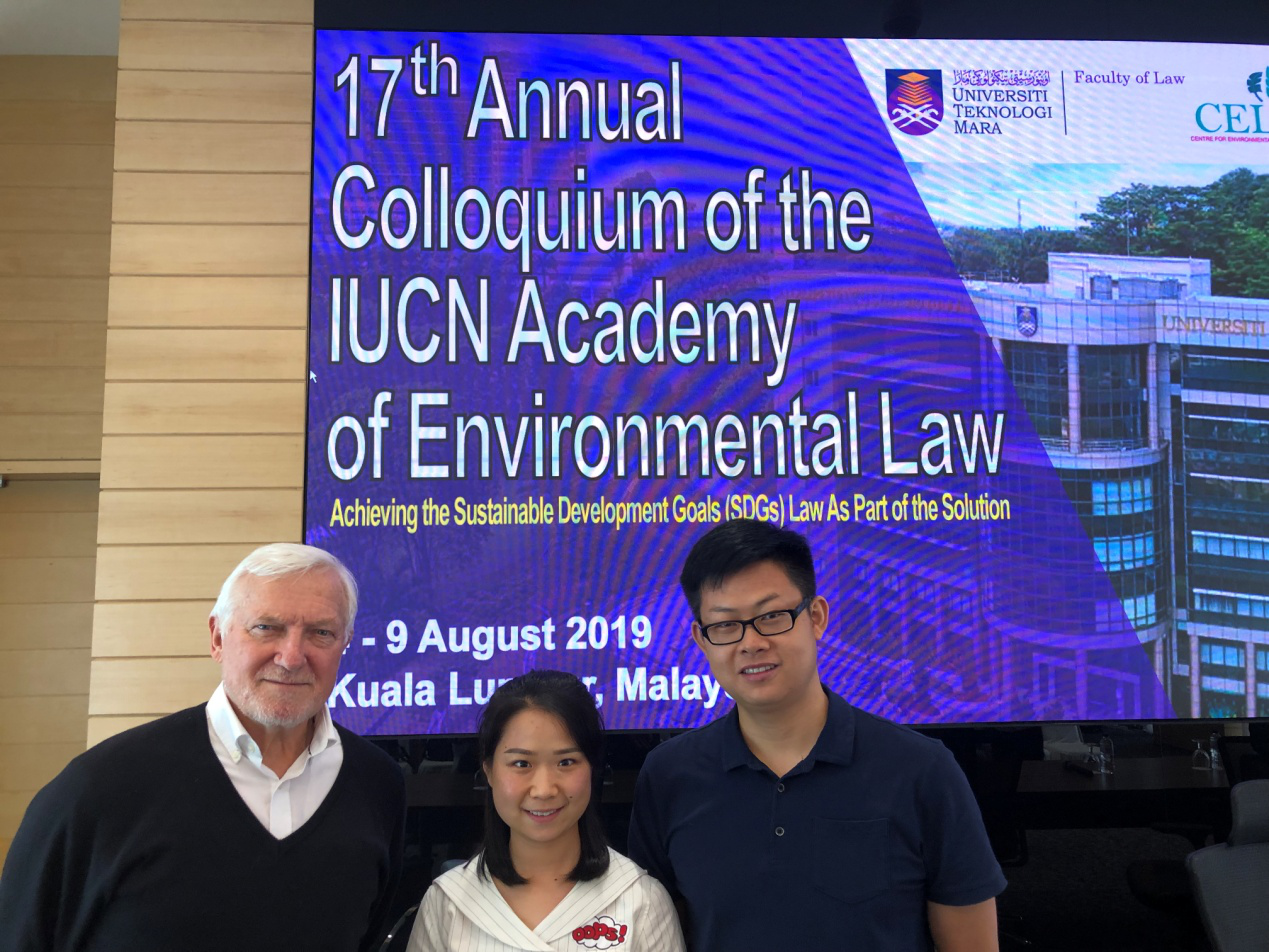
On 6 August, Professor Ben Boer participated in the Academy’s annual Teaching Workshop, prior to the beginning of the formal sessions of the Colloquium, and deliberated on several important issues concerning the use of electronic teaching aids in the classroom. On 8 August, Professor Ben Boer gave a presentation on Ecological Civilization, Implementation of the Sustainable Development Goals and the Belt and Road Initiative. He introduced the background, origin and connotations of Ecological Civilization in China's environmental law policy; expounded Ecological Civilization as a top policy priority in China's environmental governance strategy design; analyzed the relationship between Ecological Civilization and implementation of the sustainable development goals as well as the "Belt and Road Initiative", and suggested a way forward for the application of Ecological Civilization proposed by China. Prof Boer also talked briefly about the English-language Chinese Journal of Environmental Law, which is sponsored by RIEL and of which Prof Qin Tianbao and he are the co-editors.
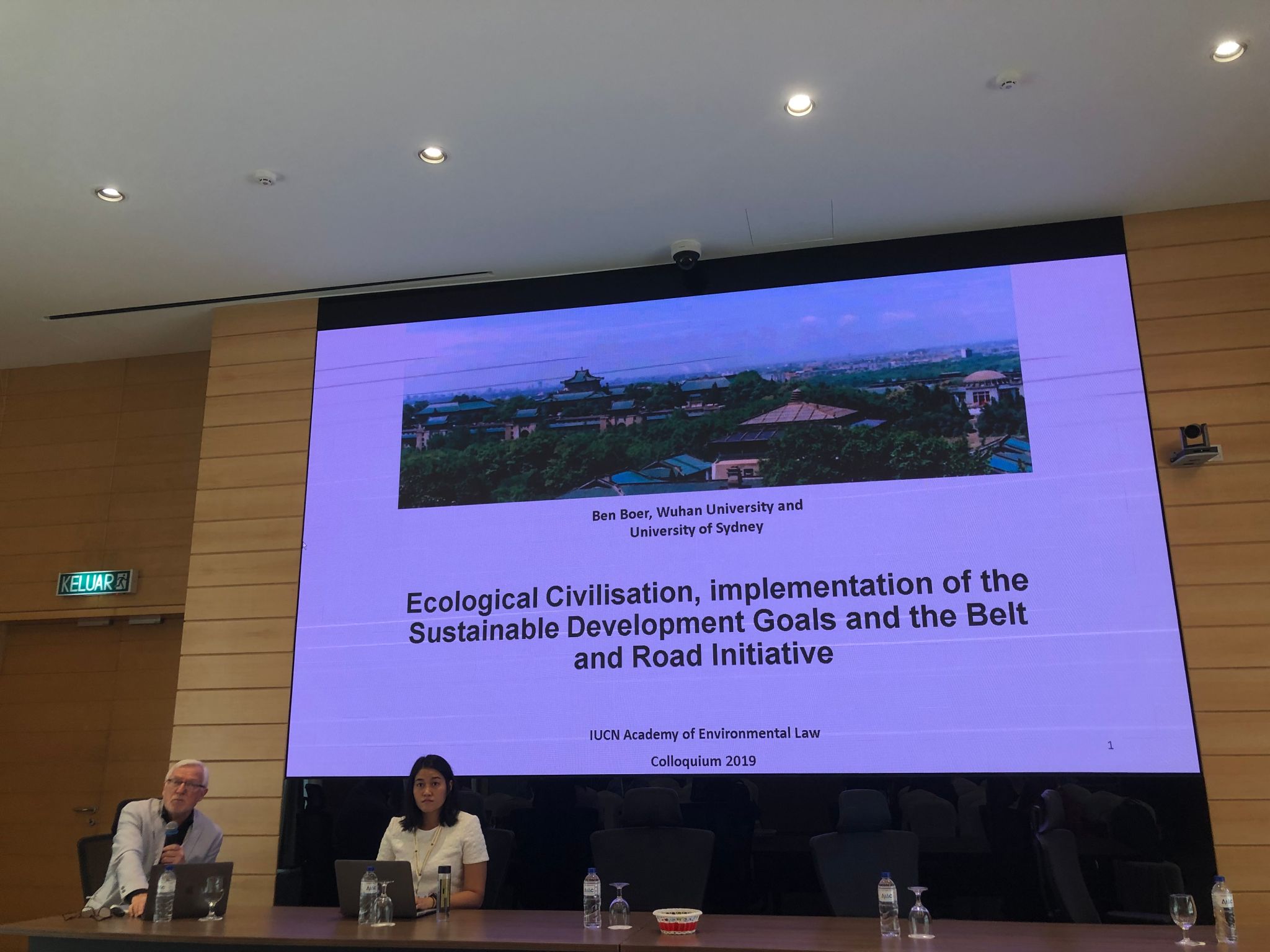
RIEL Ph.D student Qi Wanwan gave a presentation on “Protection of the Natural Heritage of Indigenous and Local Communities” under the theme of Environmental Justice. In her presentation, she identified the interests of indigenous and local communities in the natural heritage briefly and clarified the reasons why we need to protect their interests. Then she proposed the promotion of the legal mechanisms of the natural heritage by the introduction of appropriate elements of the customary law of these communities into the normative legislation. Qi Wanwan thus called for the transformation of the concept of government-led protection by encouraging the building of communities' co-management capacity and increasing public awareness and familiarity. The presentation inspired a number of penetrating questions from the audience.
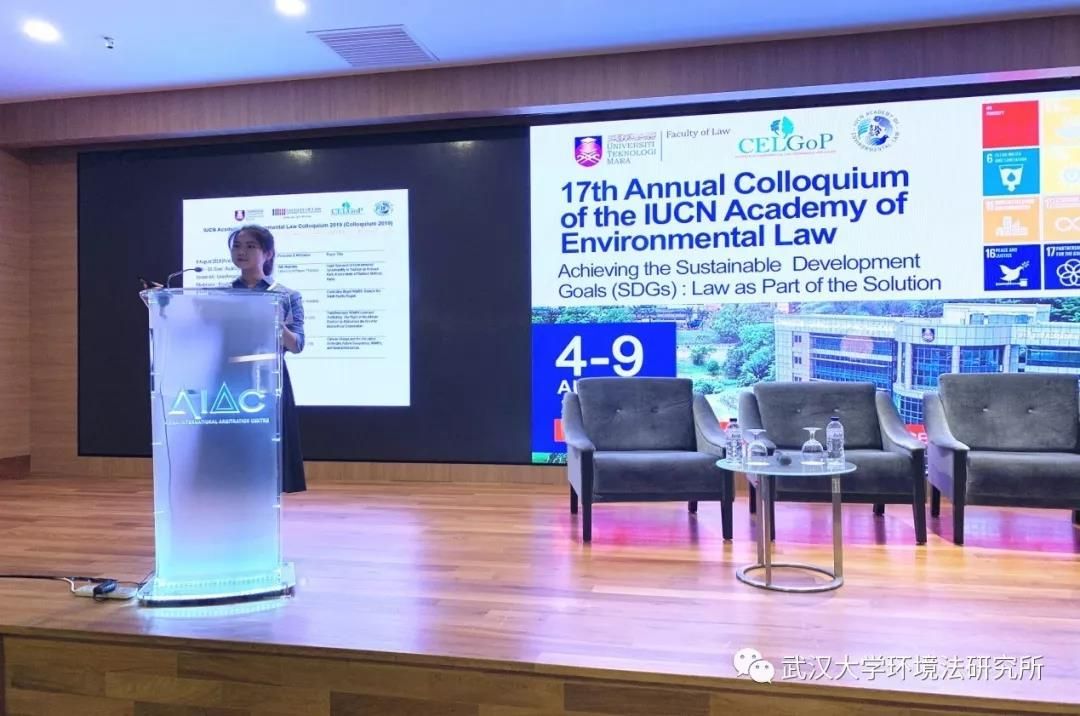
RIEL Ph.D student Ma Liang gave a presentation on “EU Effort Sharing Regulation: Lessons from the EU and their Significance for China” under the theme of Climate Change and Energy. In his presentation, he comprehensively analyzed and expounded the legislative background and motivation of the Effort Sharing Regulation. He elaborated the sectors and GHG categories, targets for both EU and Member States, trajectory for emission reduction, flexibilities and the safety reserve, criticized the low emission reduction targets, analyzed and reviewed the new flexibilities and safety reserve. Ma Liang remarked on the significance of the EU’s Effort Sharing Regulation for China’s future legislative reform and practice for greenhouse gas emission reduction. He also answered several questions.
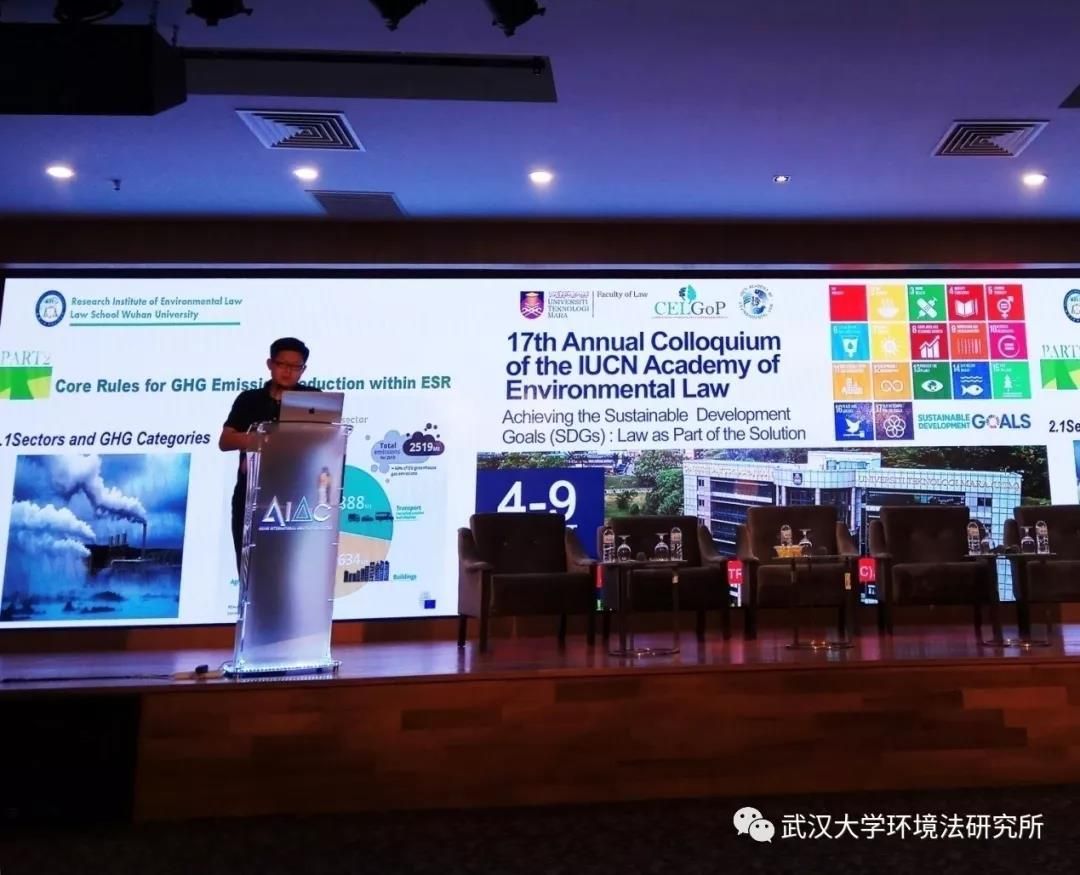
RIEL Ph.D student Abid Hussain(of Pakistan) gave a presentation on “River-based Regulation of Plastic Pollution in Asia and the Pacific: Towards Achieving the Sustainable Development Goal on Oceans and Marine Environment” under the theme of Sustainable Waste Management. He presented a river-based regulatory mechanism as a tool to regulate marine plastic pollution, with the overall aim to achieve the SDG14 on oceans and marine environment. He critically analyzed existing regional and national legal and policy approaches towards regulating marine plastic pollution in Asia and the Pacific. He also discussed the scope of SDG 14 with respect to the protection of the marine environment from plastic pollution. Finally, he developed arguments in support of a strong regional cooperative mechanism to regulate plastic pollution in Asia and the Pacific region.

At this Colloquium, the RIEL participants had extensive and in-depth exchanges with experts and scholars of environmental law institutions from various countries, which further consolidated our already existing collaboration with many Universities. They also had meaningful discussions on cooperation with other institutions and scholars. The faculty and students from the RIEL of Wuhan University were the main representatives of environmental law scholars from China. They demonstrated the research achievements and the level of the environmental law research being carried out in China and particularly at RIEL.
The IUCN Academy of Environmental Law was officially established in 2003 at Shanghai Jiao Tong University, where the its first Colloquium was held. The 7th IUCN Colloquium of Environmental Law was held at RIEL, in 2009. Over the past decade and a half, the IUCN Academy of has become a global research network, consists of more than 200 Law schools and research institutes that focus on contemporary and dynamic environmental law issues. It involves over 1000 professors and postgraduate students. Its aim is to promote academic exchanges in the field of environmental research and teaching. The global vision of the IUCN Academy is to build the capacity of environmental law teaching, the understanding of advanced concepts of environmental law as well as its implementation, especially in developing countries.
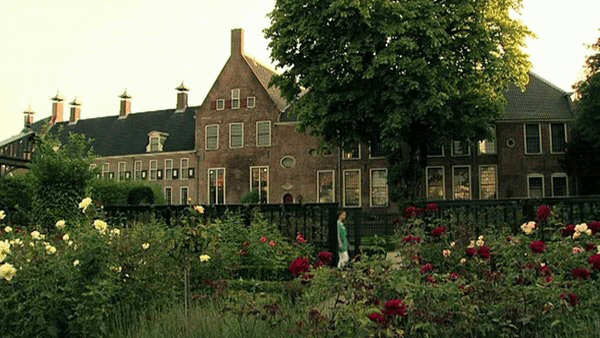
There are many benefits for participation by professors and Ph.D students, and we hope that Chinese scholars will be represented in greater numbers at the next Colloquium. The Colloquium is held every year in different countries. The theme of the 2020 colloquium will be ‘The future of Environmental Law: Ambition and Reality’. It will take place at the University of Groningen in the Netherlands.
See https://www.rug.nl/rechten/congressen/archief/2020/iucnael-2020/ and watch the short video ‘Groningen in 60 seconds’: at https://www.youtube.com/watch?v=bckh3obGYTE